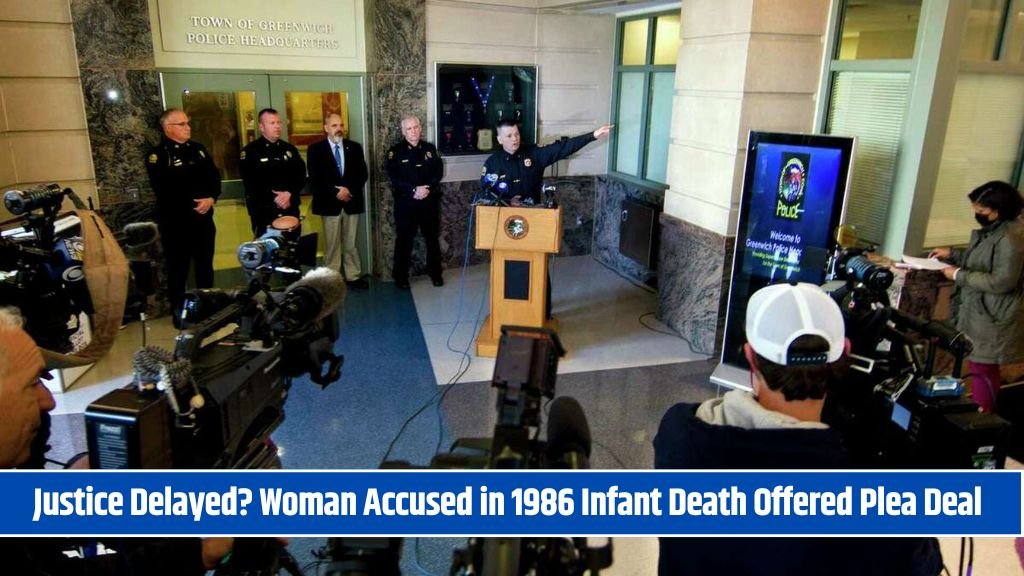Stamford, Conn. – A Florida woman accused of murdering her newborn son in Greenwich in 1986 has been offered a plea deal, officials confirmed. However, her attorney is requesting a judge’s reconsideration based on new evidence regarding her mental state at the time of the incident.
Defense Seeks Review Before Plea Decision
Janita Phillips, who was arrested in 2021 after DNA evidence linked her to the crime, was scheduled to accept or reject the plea deal during a virtual hearing at the Stamford Superior Court on Thursday. However, her attorney, Steven DeLeo, requested a continuance so that the judge could review additional materials related to Phillips’ condition at the time of the baby’s death.
During the hearing, Judge Gary White was informed that DeLeo had submitted mitigating factors for review to the presiding judge, Alex Hernandez. Additionally, DeLeo requested that the father of the child be given an opportunity to address the court.
Plea Deal Delayed; Next Hearing Set for March 4
According to State’s Attorney Paul Ferencek, the defense plans to present an extreme emotional disturbance argument as part of their case. Given this, Judge White agreed to delay the plea decision until March 4, when Judge Hernandez is expected to review the new materials.
Case Background: A Cold Case Revived by DNA Evidence
The case dates back to May 16, 1986, when the body of a newborn was discovered inside a trash receptacle on a truck parked on Havemeyer Place in Greenwich. A medical examiner later determined that the baby had been strangled to death.
Despite an initial investigation, the case went cold for decades. However, in recent years, Greenwich police reopened the case and used advanced DNA technology to identify Phillips as the baby’s mother. She was arrested in late 2021 after voluntarily turning herself in to police.
Investigation and Arrest
At the time of the incident, Phillips was working at a clothing store on Greenwich Avenue. Shortly after the baby’s death, she and her husband moved to Florida. Though authorities suspected her involvement, she was never arrested at the time.
The breakthrough in the case came in 2020, when a Greenwich police detective, alongside a Seminole County sheriff’s deputy, conducted surveillance outside Phillips’ Florida residence in Lake Mary.
According to court filings, law enforcement officials went through Phillips’ discarded trash and retrieved a cotton swab containing her DNA. Forensic testing confirmed her genetic link to the deceased baby, leading to her eventual arrest and murder charge.
What’s Next?
With the plea deal still under consideration, Phillips’ next court appearance is scheduled for March 4. The court will decide whether to accept the extreme emotional disturbance defense as a mitigating factor, which could impact sentencing if she accepts a plea agreement.
This case serves as a remarkable example of how modern DNA technology can help solve crimes decades after they occur. The tragic nature of this incident, combined with the legal complexities surrounding Phillips’ mental state at the time, continues to raise questions about justice, accountability, and mitigating circumstances. As the case unfolds, the court’s final decision on the plea deal will be closely watched.
